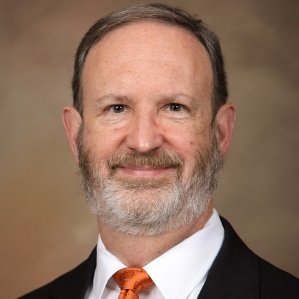Commentary on Hebrews 11:1-3, 8-16
“People get ready, There’s a train a comin’. You don’t need no baggage, you just get on board. All you need is faith to hear the diesels hummin’. Don’t need no ticket, you just thank the Lord.”
“All you need is faith,” so Curtis Mayfield’s song from the sixties assures us. The preacher of this first-century sermon we call Hebrews says it too: “All you need is faith.”
But what is faith? The opening verse of this chapter sketches two dimensions of faith or faithfulness that the writer will then develop in detail: “Now faith is the assurance of things hoped for, the conviction of things not seen” (Hebrews 11:1). First, faith provides a guarantee, the peg on which we hang our hopes. Because of faith, our hope is no flimsy dreaming; it has substance and reality. Faith provides a ground to which we may hold fast. But that grounding also orients us toward the future and gives us courage to move forward, launching out into the unknown. The second dimension of faith is that it moves us forward.
This preacher does more than provide a definition, however. He skillfully calls to mind stories that clothe these two dimensions of faithfulness with flesh and bones and sinew and breath. To know fully what faithfulness is, we must remember the stories. In a quick review, the preacher first tells us about Abel, Enoch, and Noah.
Then the pace slows as the preacher lingers over the story of Abraham and Sarah. In the lives of this couple, both dimensions of faith shine forth. They show us that faithfulness requires both holding fast and moving forward.
First, faithfulness is holding fast to the promises of God. God had promised Sarah and Abraham countless descendants and a land that God would reveal to them. But both promises were “things not seen” (Hebrews 11:1).
Would God give these wanderers from Ur descendants as numerous as stars in the sky and as countless as the grains of sand on the seashore (Hebrews 11:12)? That many descendants require one daughter or son as a start. Such a promise was not so strange when Abraham and Sarah were young, but eventually possibility gave way to improbability, and improbability to impossibility. Sarah and Abraham were no longer spring chickens. They were not even summer or fall chickens, for that matter.
Perhaps Abraham could still father a child, but Sarah knew her child-bearing days were many, many years in the past. That is why she laughed so hard the first time she overheard their visitors tell Abraham he was soon to be a father. That is why their son’s name would be Isaac, “Laughter.” His name marked God’s joy in upending human expectations, a contagious joy they remembered every time that they called out “Laughter, you stop that right this minute” or “Laughter, it’s time for dinner” or “Laughter, your mother and I need to have a talk with you.”
Abraham and Sarah also held fast to a second promise, that of land. That promise was equally impossible, for these two were wanderers, pilgrims who set out not knowing their destination. Even when they arrived in the promised land of Canaan, they lived like strangers in a foreign country, in tents, always ready to pack up and move.
But they did more than hold fast to this promise. Sarah and Abraham knew that the promise of God is also a call, and so they lived out the second dimension of faithfulness, that of moving forward. They lived in tents because they were not ultimately called to the land of Canaan. That was not their final destination. The journey was part of their obedience, but Canaan was not their home. They were looking for another city, the city with foundations not made with hands, “whose architect and builder is God” (Hebrews 11:10).
They did not receive that promise in their lifetime. They only saw the promise on the horizon, beckoning, calling them onward in their journey. Because they experienced the promise as a call, they held fast to the promises of God, and they also moved forward in response to God’s call. They knew that faithfulness is a form of courage that launches out into the unknown, moving into the future with God, knowing the future is God’s.
So how do we measure up with respect to these two dimensions of faith? Some of us find it easy to “hold fast.” We know the stories–stories of the Bible, stories of our congregations, stories of faithfulness and sacrifice. These stories matter because the stories we tell and make our own give us our bearings. They help us work out where we stand, who we are, and what we ought to do, but we find it harder to “move forward” into the future. We are not that fond of tents, and we travel with lots of baggage.
Others of us have little trouble moving forward. We like to camp. We travel light. We ask, “Where can we join what God is doing now?” We are a people on the way, on the move, knowing that the future belongs to God, but we need help “holding fast,” learning the story of God’s faithfulness to promise. We need to know of loyalty and endurance that persevere even when the path is rough and long.
So we need both dimensions of faithfulness. We need to hold fast to the promises of God and to move forward into the future which is God’s. The power of the example of Sarah and Abraham is that their lives joined these two dimensions. In the midst of change and uncertainty, they found God constant and faithful. Therefore, they too could be full of faith, holding fast to God’s promises and moving forward into that future with God. May their faithfulness shine forth as an example for us that we too may prove faithful.

August 8, 2010